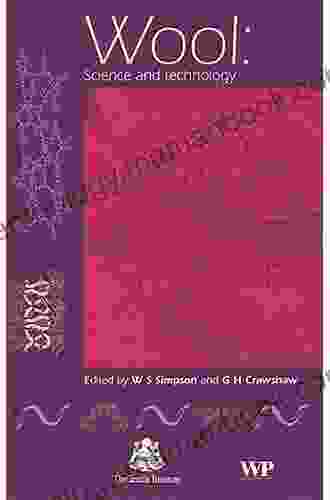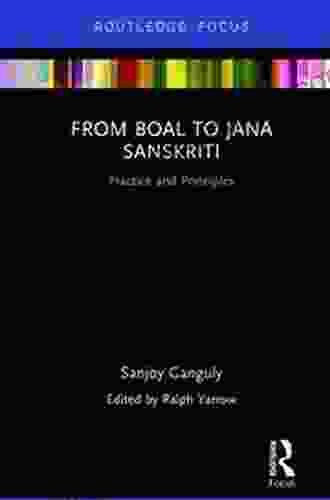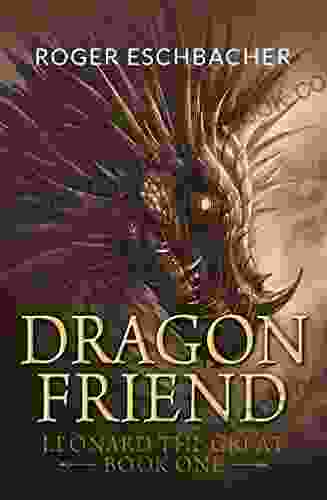From Boal to Jana Sanskriti: Practice and Principles

Augusto Boal's Theatre of the Oppressed (TO) has had a profound impact on the development of theatre for development and social change around the world. In India, the theatre company Jana Sanskriti has been at the forefront of adapting Boal's techniques to address social issues in the country. This article explores the evolution of TO into Jana Sanskriti, the principles and practices of the company, and its impact on the Indian theatre landscape.
5 out of 5
| Language | : | English |
| File size | : | 9303 KB |
| Text-to-Speech | : | Enabled |
| Screen Reader | : | Supported |
| Enhanced typesetting | : | Enabled |
| Word Wise | : | Enabled |
| Print length | : | 172 pages |
The Evolution of Theatre of the Oppressed
Augusto Boal developed TO in the 1960s as a way to empower oppressed communities and promote social change. TO is based on the idea that theatre can be a tool for raising consciousness, challenging oppression, and envisioning alternatives. Boal's techniques include participatory theatre, forum theatre, and community-based theatre.
Participatory theatre involves audience members in the performance, giving them the opportunity to share their stories and experiences. Forum theatre is a type of participatory theatre in which audience members can stop the performance at any point to suggest alternative actions for the characters. Community-based theatre is a form of theatre that is created with and for a specific community, often addressing local issues and concerns.
Jana Sanskriti: Adapting TO to India
Jana Sanskriti was founded in 1985 by a group of theatre artists who had been trained in Boal's techniques. The company's mission is to use theatre to empower marginalized communities and promote social change in India. Jana Sanskriti has adapted Boal's techniques to the Indian context, creating a unique form of theatre that is both rooted in tradition and responsive to contemporary social issues.
One of the most significant adaptations that Jana Sanskriti has made is the use of traditional Indian theatre forms, such as folk theatre and street theatre, to deliver TO techniques. This has helped to make TO more accessible to rural and marginalized communities. Jana Sanskriti has also developed new techniques, such as the "people's tribunal," which is a form of forum theatre that allows audience members to judge the actions of the characters.
Principles and Practices of Jana Sanskriti
Jana Sanskriti's work is based on the following principles:
- Theatre is a powerful tool for social change.
- Theatre should be accessible to everyone, regardless of their background or experience.
- Theatre should be participatory, giving audience members the opportunity to share their stories and experiences.
- Theatre should be transformative, helping audience members to understand and challenge oppression.
Jana Sanskriti's practices reflect these principles. The company's work is often participatory, involving audience members in the performance and giving them the opportunity to share their stories and experiences. Jana Sanskriti also uses a variety of theatre forms, including folk theatre, street theatre, and community-based theatre, to reach different audiences and address different social issues.
Impact of Jana Sanskriti
Jana Sanskriti has had a significant impact on the Indian theatre landscape. The company's work has helped to raise awareness of social issues, empower marginalized communities, and promote social change. Jana Sanskriti has also been instrumental in the development of theatre for development and social change in India. The company's work has inspired other theatre companies to use theatre to address social issues and promote social change. Jana Sanskriti has also trained a new generation of theatre artists who are committed to using theatre for social justice.
Challenges and Successes
Jana Sanskriti's work is not without its challenges. The company often faces censorship and opposition from those who do not want to see social issues being addressed. Jana Sanskriti also works with some of the most marginalized communities in India, which can be challenging and dangerous. However, despite these challenges, Jana Sanskriti has had a number of successes. The company's work has helped to raise awareness of social issues, empower marginalized communities, and promote social change. Jana Sanskriti has also been instrumental in the development of theatre for development and social change in India.
Jana Sanskriti is a pioneering theatre company that has adapted Augusto Boal's Theatre of the Oppressed to the Indian context. The company's work is based on the principles of participation, accessibility, and transformation. Jana Sanskriti's work has had a significant impact on the Indian theatre landscape, helping to raise awareness of social issues, empower marginalized communities, and promote social change. The company's work is a testament to the power of theatre to make a difference in the world.
5 out of 5
| Language | : | English |
| File size | : | 9303 KB |
| Text-to-Speech | : | Enabled |
| Screen Reader | : | Supported |
| Enhanced typesetting | : | Enabled |
| Word Wise | : | Enabled |
| Print length | : | 172 pages |
Do you want to contribute by writing guest posts on this blog?
Please contact us and send us a resume of previous articles that you have written.
 Top Book
Top Book Novel
Novel Fiction
Fiction Nonfiction
Nonfiction Literature
Literature Paperback
Paperback Hardcover
Hardcover E-book
E-book Audiobook
Audiobook Bestseller
Bestseller Classic
Classic Mystery
Mystery Thriller
Thriller Romance
Romance Fantasy
Fantasy Science Fiction
Science Fiction Biography
Biography Memoir
Memoir Autobiography
Autobiography Poetry
Poetry Drama
Drama Historical Fiction
Historical Fiction Self-help
Self-help Young Adult
Young Adult Childrens Books
Childrens Books Graphic Novel
Graphic Novel Anthology
Anthology Series
Series Encyclopedia
Encyclopedia Reference
Reference Guidebook
Guidebook Textbook
Textbook Workbook
Workbook Journal
Journal Diary
Diary Manuscript
Manuscript Folio
Folio Pulp Fiction
Pulp Fiction Short Stories
Short Stories Fairy Tales
Fairy Tales Fables
Fables Mythology
Mythology Philosophy
Philosophy Religion
Religion Spirituality
Spirituality Essays
Essays Critique
Critique Commentary
Commentary Glossary
Glossary Bibliography
Bibliography Index
Index Table of Contents
Table of Contents Preface
Preface Introduction
Introduction Foreword
Foreword Afterword
Afterword Appendices
Appendices Annotations
Annotations Footnotes
Footnotes Epilogue
Epilogue Prologue
Prologue Barbara J Saffir
Barbara J Saffir Edited By Donna Farland Smith
Edited By Donna Farland Smith Nadria Tucker
Nadria Tucker Jen Silverman
Jen Silverman Brittany White
Brittany White Mel Starr
Mel Starr Stefan Zweig
Stefan Zweig Carla A Norde
Carla A Norde Fumiaki Shingu
Fumiaki Shingu Joosr
Joosr Freeman Wills Crofts
Freeman Wills Crofts Midnight Storm
Midnight Storm Rachel Mennies
Rachel Mennies Mark Brownlow
Mark Brownlow P M Forni
P M Forni Nicola De Brun
Nicola De Brun Rm Vaughan
Rm Vaughan Brad Wetzler
Brad Wetzler Erin R Flynn
Erin R Flynn Wendall Thomas
Wendall Thomas
Light bulbAdvertise smarter! Our strategic ad space ensures maximum exposure. Reserve your spot today!

 Dan HendersonLove, Loyalty, and Sacrifice on the Front Line: A Deeper Look into the Lives...
Dan HendersonLove, Loyalty, and Sacrifice on the Front Line: A Deeper Look into the Lives... Jan MitchellFollow ·2.8k
Jan MitchellFollow ·2.8k Chuck MitchellFollow ·14.7k
Chuck MitchellFollow ·14.7k Brenton CoxFollow ·16.3k
Brenton CoxFollow ·16.3k Troy SimmonsFollow ·13.3k
Troy SimmonsFollow ·13.3k Reed MitchellFollow ·19.6k
Reed MitchellFollow ·19.6k Colt SimmonsFollow ·12.5k
Colt SimmonsFollow ·12.5k Dale MitchellFollow ·15.9k
Dale MitchellFollow ·15.9k Angelo WardFollow ·7.2k
Angelo WardFollow ·7.2k

 Vernon Blair
Vernon BlairThe Woman I Met in My Dream: An Unforgettable Night of...
As the veil of night...

 Carlos Fuentes
Carlos FuentesThe Ultimate Guide to Healthy Eating for Toddlers: Meal...
As a parent of a...

 Peter Carter
Peter CarterInside My Autistic Mind: A Journey of Self-Discovery and...
Autism spectrum disorder (ASD) is a...

 Isaac Asimov
Isaac AsimovA Journey Through Jane Austen's Literary Masterpieces:...
Jane Austen, the renowned English...

 Hank Mitchell
Hank MitchellAdvancements in Textiles: Science and Technology by...
The textile...

 Troy Simmons
Troy SimmonsRecovery Road: An Odyssey of Hope and Redemption by...
Recovery Road is a...
5 out of 5
| Language | : | English |
| File size | : | 9303 KB |
| Text-to-Speech | : | Enabled |
| Screen Reader | : | Supported |
| Enhanced typesetting | : | Enabled |
| Word Wise | : | Enabled |
| Print length | : | 172 pages |










